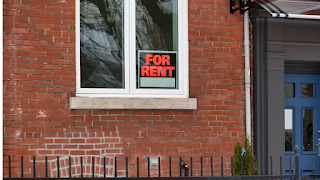In recent years, landlords have been the subject of increasingly negative press. We’re often painted as wealthy, uncaring individuals, prioritising profit over the well-being of our tenants. Stereotypes depict us as detached, affluent property owners who force tenants to live in squalor.
Even politicians have echoed this sentiment; recently, the
Labour government suggested landlords aren’t considered “working people.” This
rhetoric doesn’t just misrepresent landlords—it fails to acknowledge the
essential role we play in providing safe, stable housing for millions.
The question we should be asking is: how can we reshape this
narrative and bring a fairer, more balanced view of landlords to the forefront?
Perhaps the first step is rebranding the term “landlord” itself. While this
traditional term has deep historical roots, it also carries connotations that
may no longer suit the modern-day role we fulfil.
By adopting a new title—such as “Private Housing
Provider”—we can highlight our commitment to housing provision without the
outdated association of “lording” over tenants.
Dispelling the Myth: Not All Landlords Are Millionaires
First, let’s address the misconception that landlords are
all millionaires sitting on enormous property empires. In reality, many
landlords are regular individuals who rely on rental income to supplement their
earnings. Some may have inherited property or invested as a way to secure a
modest future. Others rent out a portion of their homes as a financial
necessity. For the majority, being a landlord is far from a get-rich-quick
scheme. Operating as a landlord, particularly for smaller, independent ones,
involves regular expenses, ongoing maintenance, compliance with regulations,
and considerable effort in managing the relationship with tenants.
Providing Quality Housing: How Private Landlords Often
Outperform Public Housing Standards
One aspect of this narrative that’s rarely discussed is the
comparative quality of housing provided by private landlords. While it’s true
that not every landlord upholds ideal standards, private landlords frequently
outperform public housing in terms of responsiveness, upkeep, and personalised
service. Unlike social housing providers, who may face bureaucracy and budget
constraints, private landlords often act more swiftly to address tenant needs
and make repairs. They also regularly invest in improvements, enhancing the
value and liveability of their properties.
Tenants in private rentals often experience more direct
communication and faster response times. For many landlords, maintaining their
property is as important as maintaining a good relationship with their tenants,
the property is an asset and if left unkept will deplete not increase in value,
and there’s a genuine effort to ensure a safe and comfortable home environment.
The Case for a Name Change: From “Landlord” to “Private
Housing Provider”
Changing the term from “landlord” to “Private Housing
Provider” may seem like a small adjustment, but words matter. A title like
“Private Housing Provider” shifts the focus to what we actually do: provide
housing. It removes the hierarchical tone of “landlord,” which can suggest an
imbalance of power and a feudal dynamic that doesn’t reflect modern realities.
By redefining our role, we can change the conversation.
This isn’t just semantics; a more neutral, descriptive title
may help government and society recognise landlords as valuable contributors to
housing, especially in a time of national shortage. As Private Housing
Providers, we may gain a stronger platform to advocate for fairer policies,
counteract stereotypes, and make it clear that we’re committed to raising
standards in the housing sector.
Advocating for Recognition and Respect
If landlords unite under a new banner as Private Housing
Providers, we can shift the conversation and emphasise our contributions to the
housing market. As providers of a critical resource, we play a central role in
a functioning society. Just as teachers, doctors, and public servants are
valued for the essential services they provide, we should be acknowledged for
offering the security and shelter that tenants need.
While a rebranding alone won’t immediately solve the issues
landlords face, it can be a powerful tool for changing perceptions. A new
title, paired with continued commitment to fair practices, transparency, and
quality housing, can help dismantle the current, often hostile narrative and
build one that respects landlords as an integral part of the housing solution.
Private housing provider suggests a more professional,
service-oriented approach, focused on responsibility, partnership, and tenant
care. This new terminology can encourage both providers and renters to view the
relationship as one of mutual benefit rather than a simple business
transaction. Additionally, it aligns more closely with modern expectations for
housing, where tenants increasingly value responsive service, maintenance, and
transparency. Adopting this language can help foster a more respectful,
cooperative dynamic between providers and tenants, which, over time, could
reduce stigma, promote trust, and support a housing market that better serves
everyone involved.
The time has come to champion this change. By adopting “Private Housing Provider,” we can start
altering perceptions and work toward a future where landlords are valued for
the vital service we provide.


